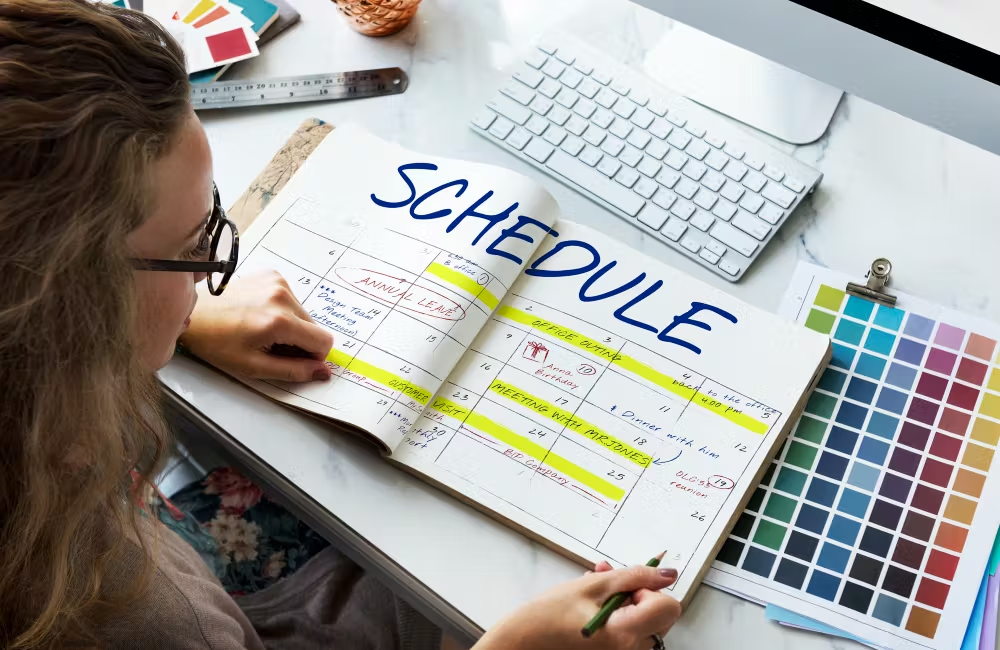Whether you’re a student preparing for final exams, someone learning a new skill, or a working professional taking an online course, having a well-planned study routine is crucial for success. But here’s the thing—knowing how to create an effective study routine isn’t just about cramming information or pulling all-nighters. It’s about building consistent habits that maximize focus, minimize stress, and help you retain what you learn.
In this blog post, we’ll break down exactly how to create a study routine that works for you, no matter your goals or schedule. From setting priorities to optimizing your environment, this is your ultimate step-by-step guide to smarter studying.
Why a Study Routine Matters
Before we jump into the “how,” let’s talk about why a study routine matters so much.
An effective study routine:
- Builds consistency and discipline
- Reduces procrastination
- Improves focus and time management
- Helps you retain information better
- Reduces last-minute stress and anxiety
With the right system in place, studying becomes more efficient and less overwhelming. Think of it as training your brain like a muscle—consistency beats intensity every time.
Step 1: Set Clear Goals
Start with the end in mind. What are you studying for?
- A specific exam or test?
- A long-term subject like math, coding, or a new language?
- Personal development or career advancement?
Set SMART goals (Specific, Measurable, Achievable, Relevant, Time-bound). Instead of “study biology,” go for “Review chapters 3–5 of biology and complete 10 practice questions by Friday.”
Clear goals give your study sessions purpose—and make tracking progress much easier.
Step 2: Assess Your Schedule
Now that you know what you want to achieve, let’s look at when you can make it happen.
Take a realistic look at your weekly calendar:
- What are your fixed commitments? (classes, work, gym, etc.)
- What are your most productive times of the day? (early birds vs night owls)
- Where are your time-wasting habits?
Once you’ve identified available time blocks, assign specific study slots. Even short 30-45 minute sessions add up when done consistently.
Pro Tip: Use time-blocking. Assign study sessions in your calendar like appointments—you’re more likely to stick with it.
Step 3: Use the Pomodoro Technique
Let’s talk productivity.
One of the best methods for studying without burning out is the Pomodoro Technique:
- Study for 25 minutes (full focus, no distractions)
- Take a 5-minute break
- Repeat 4 times, then take a longer break (15–30 minutes)
This method keeps your brain sharp and prevents fatigue. It’s scientifically backed and incredibly effective for people who struggle with long study sessions.
There are tons of apps like Focus Keeper, Pomodone, or even simple timers you can use to stay on track.
Step 4: Choose the Right Study Techniques
Not all study methods are created equal. Here are some powerful techniques to consider adding to your routine:
- Active Recall: Quiz yourself rather than just rereading notes.
- Spaced Repetition: Review material over increasing intervals for better long-term memory.
- Mind Mapping: Visualize relationships between concepts.
- Feynman Technique: Teach the concept to someone else or explain it simply.
- Past Papers & Practice Tests: Mimic exam conditions for real prep.
Mix and match based on your learning style—auditory, visual, reading/writing, or kinesthetic.
Step 5: Optimize Your Study Environment
Your environment plays a huge role in how well you retain information.
Here’s how to set yourself up for success:
- Quiet space – Minimize noise and interruptions
- Decluttered desk – A clean workspace reduces mental distractions
- Lighting – Natural light is ideal; warm white lighting is great for evenings
- All tools ready – Notebook, laptop, pens, charger, water—everything in arm’s reach
If you can’t find a quiet place at home, libraries, co-working spaces, or even quiet cafes can work too.
Bonus Tip: Use focus music or ambient sounds (like rain or white noise) to improve concentration.
Step 6: Eliminate Distractions
Let’s face it—your phone is probably your biggest enemy during study time.
Here’s how to manage distractions:
- Put your phone in another room or use focus modes
- Block distracting apps using tools like Forest, Freedom, or Cold Turkey
- Turn off notifications on all devices during your study block
- Tell your friends or family when you’re studying so they don’t interrupt
Remember: it takes 23 minutes on average to refocus after a distraction. That’s a lot of wasted time.
Step 7: Take Care of Your Body & Mind
A great study routine isn’t just about time management—it’s about energy management.
Make sure to:
- Get 7–9 hours of quality sleep per night
- Eat brain-friendly foods (nuts, leafy greens, eggs, berries)
- Stay hydrated
- Take regular movement breaks (stretch, walk, do a few squats)
- Practice mindfulness or meditation to reduce anxiety
Studying is as much about well-being as it is about discipline.
Step 8: Track Your Progress & Adjust
Once your study routine is in motion, regularly review how it’s going:
- Are you meeting your goals?
- What’s working? What’s not?
- Are you feeling motivated or burnt out?
Use a habit tracker, journal, or app to log your sessions and celebrate small wins. Don’t be afraid to tweak your schedule based on what you learn about yourself.
Consistency > Perfection. Your routine should evolve with you.
Conclusion
Learning how to create an effective study routine is a game-changer. It’s the secret sauce behind better grades, reduced stress, and faster progress toward your goals.
To recap:
- Set SMART goals
- Block study times realistically
- Use focused techniques like Pomodoro
- Personalize your study methods
- Stay organized and distraction-free
- Take care of your health and mental energy
- Track your progress and adjust as needed
With the right system and mindset, you can study smarter—not harder—and truly master whatever you set your mind to.




